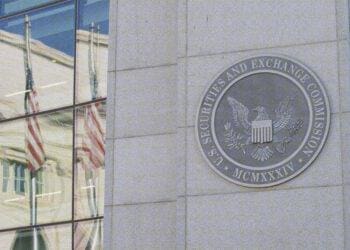With contributing authors Ali Burney and Nicholas Turner
The Office of Foreign Assets Control has just levied a penalty against Exxon Mobil for executing several agreements with Russian oil company Rosneft. The company itself wasn’t the sticking point, though; the agreements might have been fine had they not been signed by Rosneft’s President, who’s recognized by the U.S. as a Specially Designated National (SDN).
U.S. persons should not execute agreements with Specially Designated Nationals (SDNs) — even when an SDN is acting for a non-sanctioned entity. That’s the takeaway from a July 20, 2017 penalty assessment by the U.S. Treasury Department’s Office of Foreign Assets Control (OFAC) against Exxon Mobil Corporation and two of its subsidiaries (together, “Exxon”).
OFAC assessed the U.S. $2 million penalty against Exxon under the Ukraine-Related Sanctions Regulations (URSR) for executing eight agreements with Russian oil company Rosneft. The agreements were countersigned by Rosneft’s President, Igor Sechin. Sechin had previously been designated as an SDN by OFAC in April 2014.
Prohibited Services
OFAC found that, by signing the agreements with Sechin, Exxon had “dealt in services of an individual whose property and interests in property were blocked,” in violation of URSR § 589.201. OFAC stated that the definition of “property” and “property interest” included, among other things, “services of any nature whatsoever” and “contracts of any nature whatsoever.”
In other words, Exxon was permitted to enter into the contracts with Rosneft (which is not subject to blocking sanctions), as long as Sechin was not a signatory to them. According to the OFAC penalty notice, Exxon claimed that public statements made by U.S. officials suggested that an SDN’s “personal” and “professional” activities could be treated separately for the purposes of the URSR. OFAC rejected the distinction.
Responding to Exxon’s argument, OFAC referred to its Frequently Asked Questions (FAQs) concerning interactions with SDNs who are government officials. For example, with respect to the Venezuela sanctions program, OFAC’s FAQs state:
“The designation of an official of the Government of Venezuela does not mean that the government itself is also blocked … However, U.S. persons should be cautious in dealings with the government to ensure that they are not engaged in transactions or dealings, directly or indirectly, with an SDN, for example by entering into contracts that are signed by an SDN, entering into negotiations with an SDN, or by processing transactions, directly or indirectly, on behalf of the SDN, absent authorization or an applicable exemption.”
OFAC had given similar guidance with respect to government officials under the now-terminated Burma sanctions program. According to OFAC, the FAQs, along with other guidance given with respect to the URSR, should have put Exxon and others on notice that executing documents with SDNs was prohibited under the regulations.
Under its Enforcement Guidelines, OFAC found that Exxon’s violations constituted an egregious case, warranting the statutory maximum civil monetary penalty. OFAC also identified the following aggravating factors:
- Exxon demonstrated reckless disregard for U.S. sanctions requirements by failing to heed “warning signs” regarding the prohibited conduct;
- Exxon’s senior executives were aware of Sechin’s designation as an SDN;
- The violations caused significant harm to the objectives of the URSR; and
- Exxon is a sophisticated, global company that routinely deals in U.S. sanctions and export controls.
Court Challenge
Exxon immediately filed a complaint in the U.S. District Court for the Northern District of Texas challenging OFAC’s enforcement action under the Administrative Procedure Act, arguing the violation and penalty were “arbitrary, capricious, an abuse of discretion, and otherwise not in accordance with the law.”
In particular, Exxon claimed that OFAC’s interpretation regarding the execution of contracts by SDNs contradicted earlier guidance given by U.S. officials and the plain language of Executive Order 13661, which underpins the URSR. Furthermore, Exxon claimed that OFAC’s action violated its right to due process under the U.S. Constitution.
The challenge is currently pending.
Lessons Learned
The case highlights the growing risk to U.S. persons doing business with companies whose senior executives are SDNs. There are currently 60 individuals designated as SDNs under the URSR, many of whom are high-ranking officials in major Russian companies and the Russian government. OFAC has also recently designated Venezuela’s president and other high-ranking government officials under the Venezuela sanctions program.
It should also remind companies of the benefits of erring on the side of caution. It is always a good idea to seek further advice, including a qualified legal opinion, when engaging in activities that may run afoul of OFAC sanctions but for which precise guidance has not been given.
U.S. companies that have entered into agreements with non-designated companies that were countersigned by an SDN executive of the company should review these contracts and consider filing a voluntary self-disclosure with OFAC if the facts dictate. Doing so can result in a reduced penalty under OFAC’s Enforcement Guidelines.
_____________________________________
The OFAC penalty assessment notice is available at: https://www.treasury.gov/resource-center/sanctions/CivPen/Documents/20170720_exxonmobil.pdf
The Exxon complaint challenging the OFAC penalty assessment is available at: http://cdn.exxonmobil.com/~/media/global/files/other/2017/exxonmobil-complaint.pdf



 Wendy L. Wysong is a partner at
Wendy L. Wysong is a partner at 









